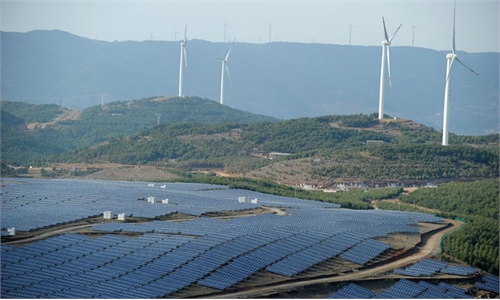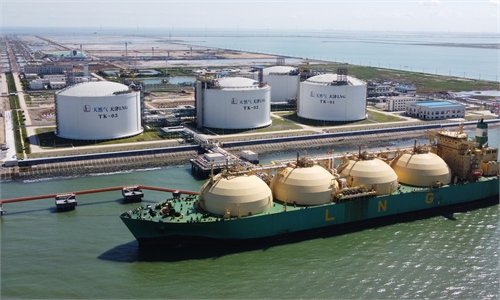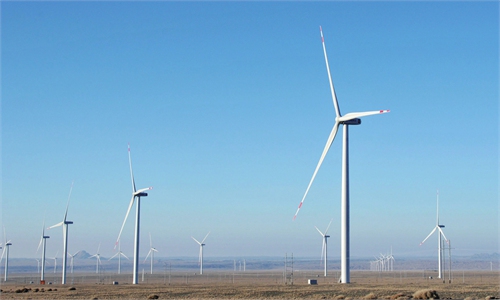China's top economic planner vows to promote construction of renewable energy bases
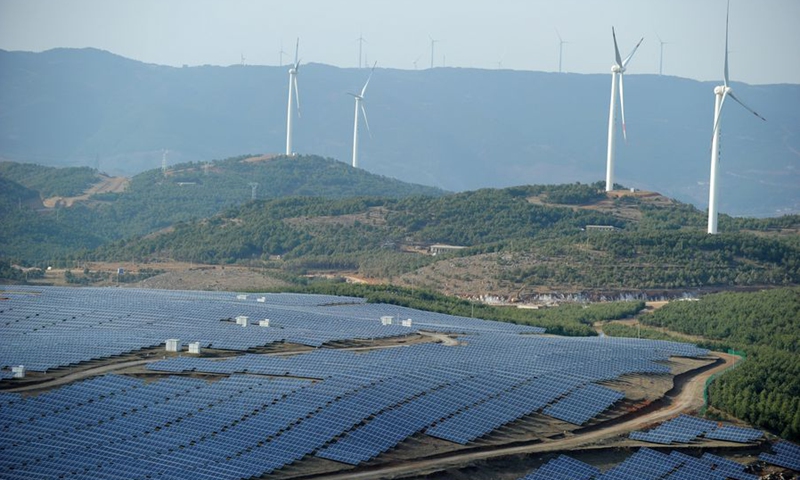
Photo shows the Pingjing photovoltaic (PV) power station and Dahaizi wind power station in Weining County, southwest China's Guizhou Province. File photo: Xinhua
China's top economic planner, the National Development and Reform Commission (NDRC), said it will promote construction of large wind power and hydropower bases, ramp up renewable energy consumption and increase support for foreign investment in advanced and new technologies.
Zhao Penggao, a deputy director of NDRC's Department of Resource Conservation and Environmental Protection, said on Wednesday that China will draw up plans to develop a clean, low-carbon and renewable energy system.
"We will promote the development of new and renewable energy more proactively. At the same time, we will continue to reduce coal use in the energy structure," said Zhao.
A veteran industry insider in the wind power sector told the Global Times that the moves are in line with China's efforts to achieve peak carbon emissions by 2030 and carbon neutrality by 2060.
"China has made progress in clean energy deployment and the country is still expanding the capacity of wind power, solar power, nuclear power and tidal power," said the insider.
In one recent example of new-energy development, Hangzhou, the capital city of East China's Zhejiang Province, on Wednesday released a draft on accelerating the development of renewable energy. The province will promote the construction of rooftop distributed photovoltaic (PV) facilities in all its counties.
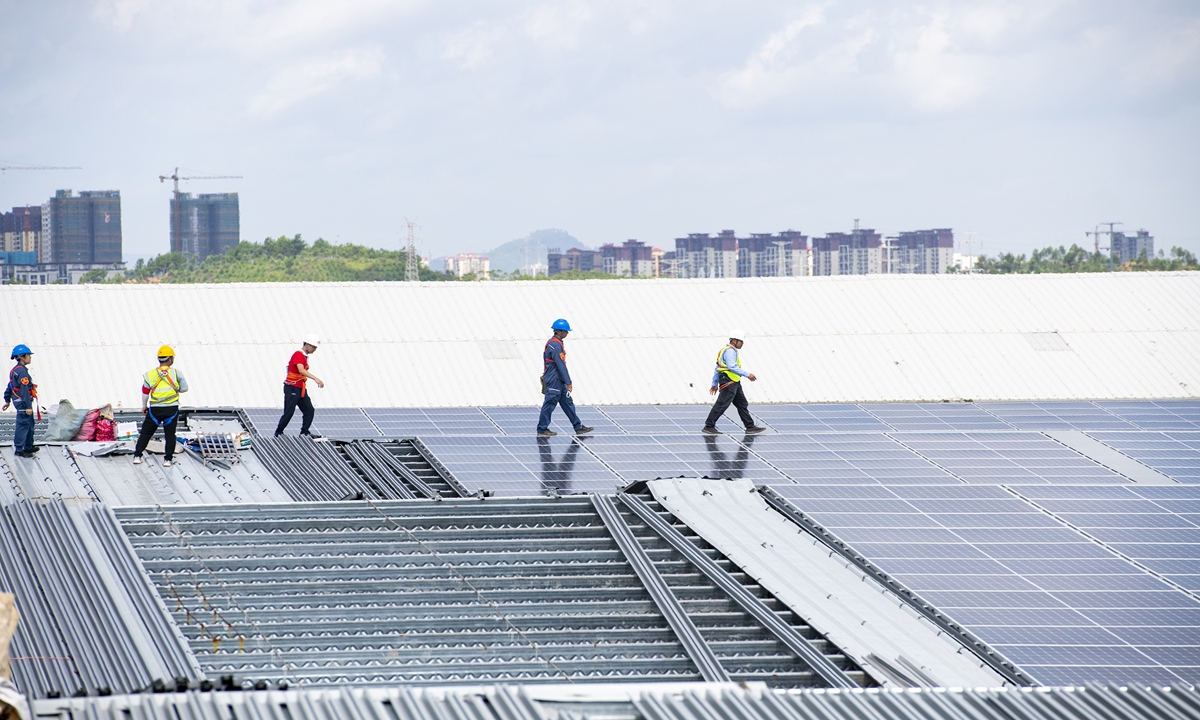
Workers install solar power generation modules on a factory's roof in Teng County, South China's Guangxi Zhuang Autonomous Region, on June 23, 2022. The project is expected to avoid the use of 7,014 tons of standard coal annually, cutting carbon dioxide by 1,754 tons. Photo: VCG
Hangzhou will develop and expand energy storage facilities, and promote industrialization of new-energy storage technologies such as sodium-ion batteries, solid-state lithium-ion batteries, molten salt energy storage, and hydrogen energy storage.
In a notice released in September, the NDRC said that it will steadily promote construction of wind power and solar power bases in places like deserts and the wilderness. And, the top economic planner said it will improve production capacity of solar power industrial chain and supply chain.
China has started eliminating fossil energy fueled power production. For example, Huaihe Energy (Group) Co on Wednesday said in a statement that it had received a notice on the elimination of outdated production capacity in the coal-fired electricity sector in East China's Anhui Province.
In 2021, the proportion of clean energy consumption in China reached 25.5 percent, up from 14.5 percent in 2012. The share of coal consumption dropped to 56 percent, down 12.5 percentage points from 2012, official data showed.
China's installed capacity of renewable energy has exceeded 1.1 billion kilowatts (kW), and the installed capacity of hydropower, wind power, solar power and biomass power all rank first in the world.
According to the International Energy Agency, the global share of electricity generated by solar and wind power will increase from 10 percent in 2021 to 40 percent in 2030 and further to 70 percent in 2050.
China's low-carbon pursuit will offer opportunities for foreign enterprises and investments, the industry insider said.
China's dual carbon goal means a broad and profound economic and social transformation. In the process of this transformation, there will be huge market opportunities, said Zhao on Monday during a high-level roundtable between the NDRC and US multinationals in China held in Beijing.
Zhao said that there will be room for cooperation on low-carbon and zero-carbon technologies, and on green and low-carbon investment.
Global Times
